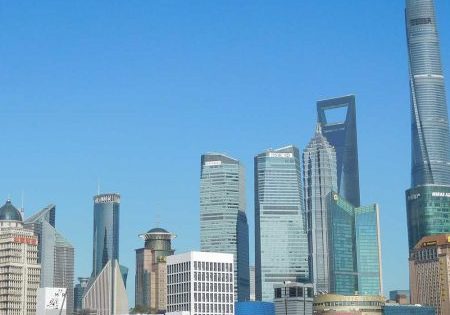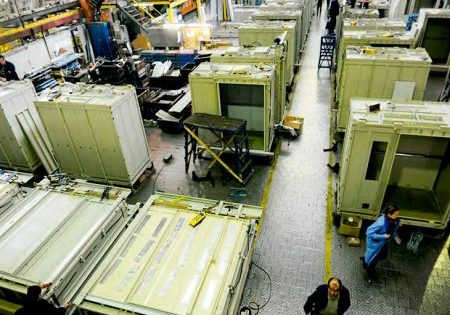The new “Elevator Market Surveillance Directive” has been published in the Official Gazette No. 31276 on October 16, 2020, by the Ministry of Industry and Technology.
The new directive which was prepared in consultation with the relevant units of the industry, consists of three sections and 18 articles. The Ministry of Industry and Technology announced that, starting with May 2020, it began making some changes in the Market Surveilance Directive in order to carry out market surveillance and inspection on more elevators and to eliminate conflicting issues. The Turkey Elevator Industrialists’ Federation (ASFED) also presented a detailed report about the directive to the Ministry of Industry and Technology.
The prominent articles in the revised directive are as follows:
The Warranty Period has been extended to 3 years, and definitions have been changed
The important definitions in Section 1, Article 4, have been readdressed; the definition of “responsible” in clause “t” and the definition of “sensory examination” in clause “h” have been revised. Additionally, “Warranty Period” in Article 4, clause “i,” has been defined as “In accordance with the Elevator Operation and Maintenance Directive published in the Official Gazette No. 30737 on April 6, 2019, it describes the period given to each elevator placed on the market by the elevator installer, which is at least three years as of the date being placed on the market.”
The installer will also be responsible for the maintenance of the elevator
The term “Elevator Under Warranty” in Article 4, clause “i,” has been revised to say “Elevator on which the supplier of the elevator or its authorized service provider carries out its maintenance activities within the warranty period within the scope of the Elevator Operation and Maintenance Directive.” With this addition, the installer will be responsible for the maintenance of the elevator, and if the owner of the elevator transfers elevator maintenance to a service provider other than the installer or authorized service, the elevator will be excluded from the scope of warranty.
The term “Suspicion of Unsafety” has been removed
The definition “suspicion of unsafety,” which took place in statements about market surveillance in “Article 5, General Principles, Clause 6,” has been removed and replaced with the statement, “After the Market Surveilence, the inspection personnel may determine conformity or nonconformity with the technical regulations or indication of safety or unsafety.”
Terms for placing a product on the market
In “Article 5, General Principles, Clause 7,” regarding the acceptance of the lift to be placed on the market, the following conditions have been added:
- a) The installer should issue an EU declaration of conformity
- b) A registration certificate should be issued by the related institution
- c) An elevator installation invoice should be issued
- d) The first periodic control report for the elevator should be prepared before the registration .
Right of Defense for the Installer
Under the section “Nonconformity with the Technical Regulation,” of Article 8 in the Elevator Market Surveilance Directive, new regulations have been included about technical problems or noncorformities that may occur with the elevators. Accordingly, nonconformities found in the elevator will be reported to the elevator installer by registered mail or within the scope of the provisions of the Electronic Notification Regulation. The installer will be able to submit a written defense to the provincial directorate regarding the detected nonconformities within five working days from the date of notification. If the installer does not submit a defense within five working days, or if its defense is not sufficient, it will be deemed that the nonconformities were caused by the installer. If the defense is sufficient, the party responsible for the nonconformity will be determined.
The period for elimination of nonconformity is 30 days
If a person or legal entity is determined to be responsible after the inspections are carried out and, following the defense, makes a commitment to the Provincial Directorate conducting the inspection that he will carry out the correction within five working days from the date when the nonconformities were reported to him, the Provincial Directorate will give him maximum 30 days for the corrections.
If the responsible cannot be party determined
Article 8, Clause “g,” states, “In case the responsible party does not make a commitment to eliminate the nonconformity of the elevator, or does not correct the nonconformity within the given time despite making a commitment, the necessary actions are to be taken by the building manager to eliminate the nonconformities found with the elevator.” The building manager will be able to revoke the expenditures for eliminating the nonconformities to the responsible party, within the frame of relevant legistation provisions.
The following Clause states, if the responsible party cannot be determined by the Provincial Directorate and the building manager cannot document the party responsible for nonconformities with the elevator, the necessary actions will be carried out by the building manager to eliminate the nonconformities. However, in this case the building manager will not be deemed responsible for the expenditures of tests and inspections and their followup.
Strict enforcement for those who put unsafe elevators on the market
The 14th article of the Elevator Market Surveilance Directive states that strict enforcement will be imposed to the Notified Body and the installer who place more than three unsafe elevators on the market within one year. Accordingly, at the end of the market surveillance, if the Provincial Directorate that performs the inspection determines that more than three unsafe elevators have been placed on the market in one year, the information about the installer will be submitted to the relevant notified body and a reassessment will be requested about whether the installer meets the relevant legislation requirements or not.
In such a case, the result of the reassessment about whether the installer meets the relevant legislation requirements or not will be reported to the Directorate General for Industry of the Ministy by the Notified Body, and, if it is determined that the installer does not fulfill its responsibilities, the enforcement actions mentioned in the second and third paragraphs of Article 9 of the Law will be applied to the Notified Body by the General Directorate of Industry.
Get more of Elevator World. Sign up for our free e-newsletter.





